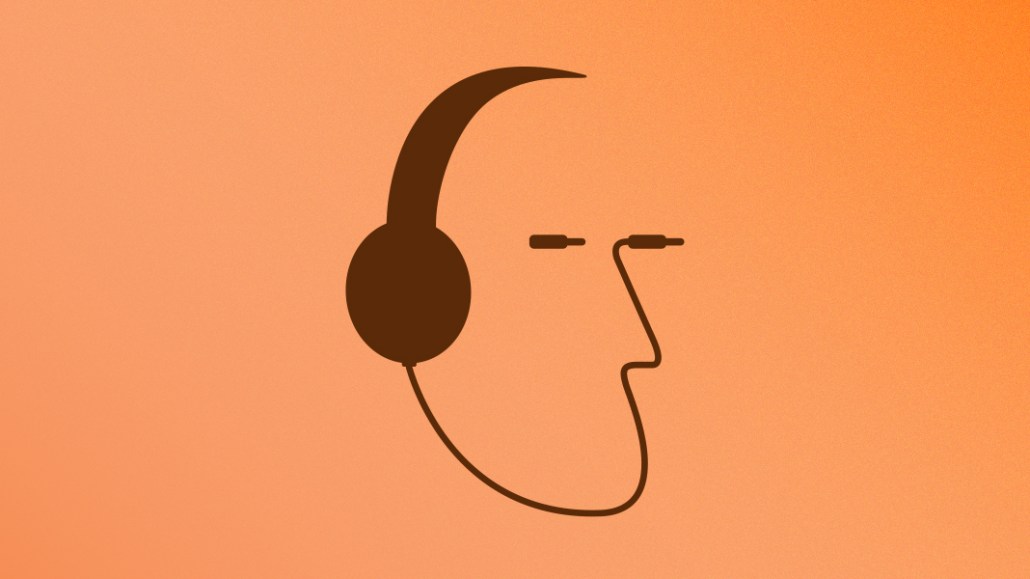
Podcasting is going Hollywood.
Over the past year, HowStuffWorks, Gimlet and Wondery have stepped up their search for content that can be adapted into film, television, or even books as production studios snap up podcasts for high-profile films and cable TV series with A-list talent like Julia Roberts, Connie Britton and Eric Bana.
Gimlet Media, the startup that began selling film and TV rights to its shows last year, has already exceeded every 2018 goal it had set for Gimlet Pictures, said its head, Chris Giliberti. Wondery sold its podcasts’ film and TV rights to producers before the shows were formally released, said CEO Hernan Lopez.
But this strategy faces hurdles. Podcasting has advertising challenges, which makes it hard for publishers to recoup their high production costs. Getting top talent might require dealing with talent management companies. And the audio market still has the same old discovery and marketing challenges.
An IP “feeding frenzy”
Podcasts and their creators have jumped from audio to visual mediums before. Marc Maron parlayed his conversational podcast “WTF with Marc Maron” into a sitcom, “Maron,” which ran on IFC for four years. “Comedy Bang Bang!,” based on a podcast of the same name, had a five-season run on IFC that concluded in 2016.
Film and television producer interest in the medium has intensified recently. Thanks to a video content boom fueled by Netflix, Amazon and Apple, production studios are hungry for intellectual property with a built-in audience. And podcast companies have taken advantage. This summer, HowStuffWorks President Conal Byrne boasted that 10 of his network’s 40 shows had been optioned for development into film or TV projects. Another set of HowStuffWorks shows is about to spawn a book series. HowStuffWorks and Gimlet have been hiring full-time producers to get more shows through the development process.
“There’s a bit of a feeding frenzy going on right now,” Byrne said. “You hear this mantra going around in Hollywood right now that podcasts are the new scripts.”
A bigger investment
The economics are challenging, though. Generally, scripted shows take more money and time to make than non-scripted ones. Hernan Lopez, CEO of Wondery, said a high-end, scripted show needs to tally around 500,000 downloads per episode to make economic sense. “Mogul: The Chris Lighty Story,” a scripted podcast for Spotify Gimlet made with Loud Speakers Network last, year took over a year to produce.
There are also fewer chances to recoup on that investment. A season of a scripted series might only run five or six episodes, so there’s a finite amount of inventory to sell. It’s hard to sell advertisers, particularly the performance marketers who still drive most of podcasting, on scripted series, whose CPMs can be four times that of a non-scripted podcast.
“We have found very little correlation between performance and CPM,” said Russell Lindley, the president of media agency Ad Results Media.
Some companies look for other ways to recoup. Midroll, for example, releases premium series like Issa Rae’s “Fruit” and “Wolverine: The Long Night” on its subscription service, Howl, before making it widely available.
“If you spread out what you hope to make across those two platforms, you don’t have to reach that many people for it to become successful,” Midroll Chief Content Officer Chris Bannon said.
Discoverability problems remain
A bigger budget or higher production values don’t help solve podcasts’ discoverability problems. Most listening happens on Apple’s podcast app and there’s limited ability to promote audio on platforms like Facebook or Instagram, making it hard to market these shows.
“I’m not 100 percent convinced that there is a giant, giant audience for it,” Bannon said. “Listeners have to be retrained [to listen to scripted audio programming]. You have to start with, ‘Will the story be powerful enough to draw people back into this genre of the medium?’”
Lisa LaCour, head of marketing at Endeavor Audio, which is developing scripted podcasts from “Law and Order” creator Dick Wolf, said as Endeavor’s first slate of shows rolls out, she will try to build content strategies that extend beyond audio to build awareness. To promote “Dr. Death,” a scripted, true crime podcast about a surgeon who killed or paralyzed dozens of patients, Wondery bought a billboard outside the medical center where the doctor actually worked.
It’s worth remembering that scripted shows may attracts the headlines and the Hollywood producers, but non-scripted still accounts for most of the podcasting universe. And even publishers who are invested in scripted shows know not every show can be a series, movie or a musical. “There is no mandate that every [podcast] has to be something [that gets extended],” Giliberti said.
More in Media

Digiday+ Research: Dow Jones, Business Insider and other publishers on AI-driven search
This report explores how publishers are navigating search as AI reshapes how people access information and how publishers monetize content.

In Graphic Detail: AI licensing deals, protection measures aren’t slowing web scraping
AI bots are increasingly mining publisher content, with new data showing publishers are losing the traffic battle even as demand grows.

In Graphic Detail: The scale of the challenge facing publishers, politicians eager to damage Google’s adland dominance
Last year was a blowout ad revenue year for Google, despite challenges from several quarters.








